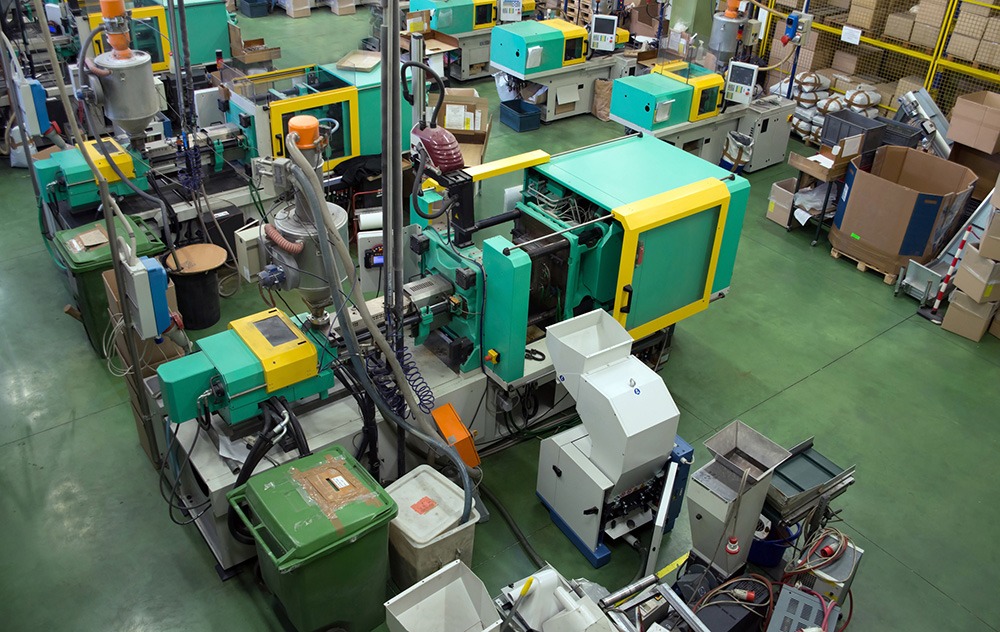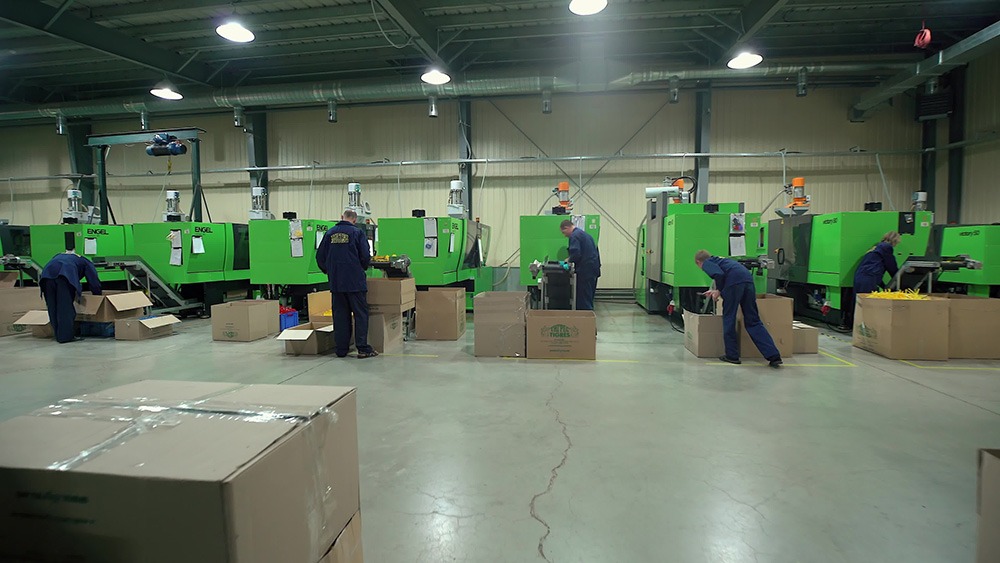How to select a manufacturer for your product
Posted by Ben Mazur 10.01.2019
 Select a manufacturer for your product
Select a manufacturer for your product
- Speak to several manufacturers and get multiple quotes
- It can be easier to look in your local country
- Look for accreditations such as ISO:9001
- Ask to see examples and case studies
- Look at their clients and who they currently work with
- Trust your gut

Ben Mazur
Managing Director
With your product designed and ready for manufacture, you need to find a manufacturing partner you can trust. But that can be fraught with difficulty. Here are some pointers to help you shortlist manufacturers for your next project.
1. Get more than one quote
It might sound obvious but getting more than one quote helps you get a good feel for how much your manufacturing should cost.
After all, prices can vary significantly from one manufacturer to the next based on location, how busy the manufacturer is and how much they want, need or can handle the work.
It can also be down to how well equipped they are to deliver the service you need.
Bear in mind that they may need to invest in new equipment or hire more staff to deliver your products, and it is fairly common for manufacturers to price themselves out of the market if they don’t want to do a particular job.
So always get more than one quote.

2. Speak the same language
Successful product manufacture can only happen after a lot of conversation, so it would be in your and your choice manufacturer’s interests to be able to communicate easily.
For many manufacturers in the UK, USA and across most of Europe, English is the business language, but beyond that – often where prices are cheaper – you need to ensure you’ll have smooth communication channels throughout the process.
And, believe me, you’ll want to communicate a lot throughout the process, not just to the sales team but often to the engineers.
Unless you speak Mandarin or any of the languages spoken in India, you will likely be relying on your chosen manufacturer having staff who speak good enough English to understand nuances.
How can you know before you start, though?
Check the website: a poorly written website might set alarm bells ringing – it’s indicative of a company that does little business in the English-speaking world, or one that isn’t especially interested in drawing in English-speaking clients.
Another approach is to request a phone or Skype call to discuss your project. It will give you the chance to have conversations that will help you gauge the level of English.

3. Industry-specific accreditations
Manufacturers aren’t all cut from the same cloth.
If a manufacturer specialises in children’s toys and you want to produce medical devices, keep looking – obviously. Just having a factory, doesn’t mean a manufacturer can provide what you need.
Look for examples of experience and accreditations specific to your area.
For medical-device manufacture, for example, you should be checking for clean-room facilities for moulding and packaging, evidence of supplying big-name brands in this sector and ISO 13485 medical-device manufacturing quality-management systems.
This International Organization for Standardization (ISO) requires the certified organisation to demonstrate its quality system is effectively implemented and maintained.
Beyond the medical industry, others will have their own certifications and standards, so learn what these are and find manufacturers who can demonstrate the level required to attain the specific accreditation.
Each industry has specific accreditation that helps assure you of competency and quality management. For example, medical products use ISO 13485; aerospace, AS 9100D; computer software, ISO 90003 and for food safety management systems, ISO 22000.
Further reading https://www.iso.org/popular-standards.html

4. Quality management
Whatever industry you’re in, look out for ISO 9001 – it’s a good sign that a company is committed to actively improving service all the time and putting the customer first. It ensures processes are properly laid out and documented, and that continual improvement and monitoring of feedback guides the company’s constant quality-management systems.
See ISO 9001 and you can be satisfied that procedures are in place to ensure the company can deliver what they say they can and also that they have mechanisms to dictate what happens when things don’t go to plan.

5. Capability
It is not unknown for companies to farm work out to other, smaller companies, which could put you in an awkward – or even illegal – situation down the line if the smaller company doesn’t adhere to required standards.
If possible, visit the manufacturer’s premises to satisfy yourself the company has the right equipment and has the means to manufacture your product onsite. If you can’t visit personally, ask for a tour by Skype.
You could also ask for samples of products manufactured in the factory, so you can inspect the quality as well as maybe get an idea of delivery time and paperwork.
6. Ethics
Global manufacturers – often those based in Asia – might not be as rigorous with working standards as you’d hope, so hold them to account by asking for proof of strategies to combat human trafficking and child labour and ensure safe working conditions.
Further reading https://www.ilo.org/global/about-the-ilo/lang–en/index.htm
7. Capacity
Work out which manufacturers on your shortlist have the capacity to keep up with you when the orders start rolling in. You need to know that when your demand doubles, triples or even quadruples – or more – they can stay with you, month on month. Ask how big the workforce is, how many machines the company has and – quite importantly – how busy it is.
If the company sees you as small fry, that they can squeeze you in alongside one or two big clients, you might hit a bump in the road when the manufacturer gets a big order from elsewhere. It’s a tough thing to balance: both too busy and not busy enough can cause concern. If a company has too many other clients, you might find you’re ignored or overlooked; not having many clients could be indicative of a deeper problem.
You need to have the confidence in their ability to deliver and not let you down when you need them most.
8. Ask for references
Nothing is more convincing than the word of those who have trust in the manufacturer. Most companies will shout about the biggest-name clients they do business with. But it’s worth scratching the surface:
- How many units do they ship to that named client?
- Do they still work together?
- What do those big hitters have to say about your shortlisted manufacturers?
Big-name clients carry a lot of clout, so don’t be afraid to contact them to get the inside scoop on working with the manufacturer:
- Does it deliver on time?
- What is customer service like?
- Are the communication channels effective?
9. Go with your gut
Trusting intuition may seem a little foolhardy, but this is a relationship, and you can choose who you work with. So, wherever possible, sit down and talk to them to get a feel for who they are:
- Do you like them?
- Do you get a good feeling?
- Does the company feel reliable?
One thing we are not short of in this world is manufacturers, so shop around. Listen to any nagging doubts because intuition is there for a reason. You are putting your faith, money and your future business in the care of one manufacturing company, so if something doesn’t feel right, keep looking.

 Select a manufacturer for your product
Select a manufacturer for your product